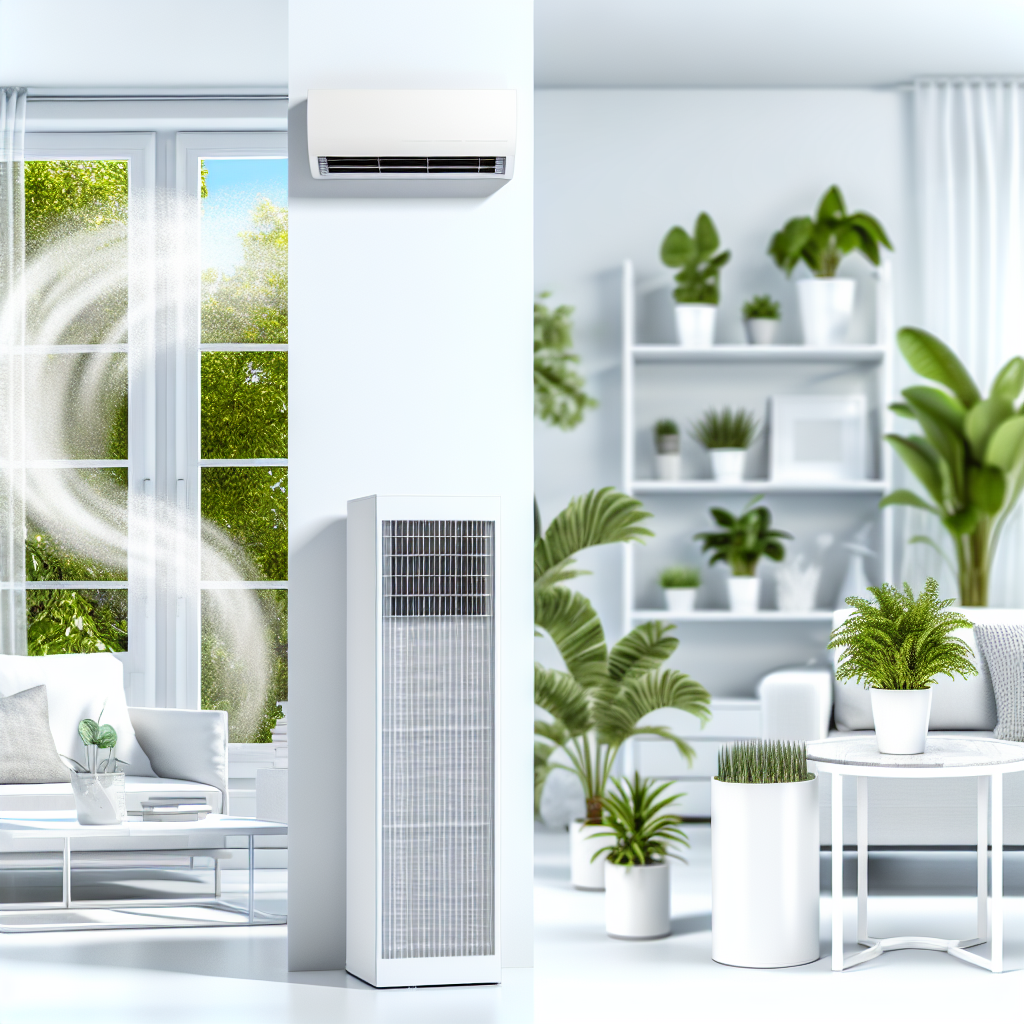Published: Feb 19, 2025

Indoor air quality plays a vital role in maintaining a healthy and comfortable living environment for you and your family. Poor air quality can lead to various health issues, ranging from allergies and asthma to more severe respiratory problems. Here are some top tips to help you improve the indoor air quality in your home:
Regular cleaning is key to reducing indoor air pollutants. Dust and vacuum frequently to minimize dust mites, pet dander, and other allergens. Clean and dust all surfaces in your home, including blinds, curtains, and upholstery.
Ensure your home has adequate ventilation to allow stale air to escape and fresh air to enter. Use exhaust fans in kitchens and bathrooms to remove cooking fumes and moisture. Opening windows on pleasant days can also help improve air circulation.
HVAC filters trap dust, pollen, and other airborne particles to prevent them from circulating in your home. Make sure to replace your HVAC filters according to the manufacturer’s instructions, usually every 1-3 months. This simple step can significantly enhance your indoor air quality.
Maintaining proper humidity levels in your home can help prevent mold growth and reduce the presence of dust mites. Consider using a dehumidifier in damp areas and investing in a hygrometer to monitor humidity levels. The ideal indoor humidity level is between 30-50%.
Identify and eliminate sources of indoor pollution, such as smoking indoors, using harsh cleaning chemicals, or burning candles. Opt for natural cleaning products and avoid smoking inside your home to minimize exposure to harmful chemicals.
Air purifiers can help remove airborne particles and improve indoor air quality. Choose a high-efficiency particulate air (HEPA) filter to effectively capture dust, pollen, pet dander, and other allergens. Place air purifiers in commonly used areas for maximum effectiveness.
Schedule regular HVAC maintenance to ensure your heating and cooling systems are functioning efficiently and not circulating pollutants throughout your home. A well-maintained HVAC system can help improve air quality and reduce energy consumption.
Certain houseplants can act as natural air purifiers by absorbing toxins and releasing oxygen. Consider adding plants such as spider plants, peace lilies, or aloe vera to your indoor space to enhance air quality. Just be mindful of any allergies to specific plants.
Many air fresheners and scented products contain harmful chemicals that can worsen indoor air quality. Opt for natural alternatives like essential oils or DIY air fresheners made from baking soda and natural scents like citrus or lavender.
Radon is a colorless, odorless gas that can seep into homes through the ground and lead to serious health risks. Consider testing your home for radon levels and take necessary measures to mitigate any high levels to ensure a healthier indoor environment.
By implementing these tips, you can significantly improve the indoor air quality in your home, creating a safer and more comfortable space for you and your loved ones.

Our expert technicians are ready to assist you 24/7!
Contact Us Today!Read our latest articles for helpful information about heating, cooling, and air quality.
Regular HVAC maintenance is essential for improving energy efficiency, extending the lifespan of your system, enhancing...
Read MoreImplement these 10 tips to enhance the air quality in your home, promoting a healthier living environment for you and y...
Read MoreRegular seasonal HVAC maintenance is essential for maximizing system efficiency, ensuring indoor air quality, preventing...
Read MoreSmart thermostats offer energy savings, convenience, learning capabilities, and integration with smart home systems, mak...
Read More